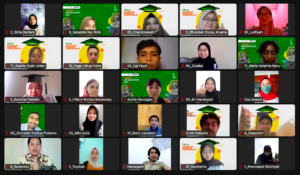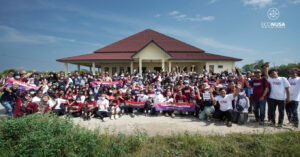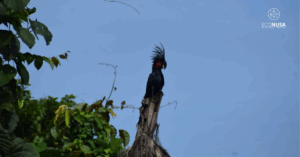
Like gold and jewellery, the fragrant and warmth of clove has become treasures in the 15th century which lured Portuguese, Spaniard and Dutch peoples to fight each other domination. They sailed through giant wave crossing ocean from west to east until North Maluku. History record unveiled that Portuguese arrived at Ternate, North Maluku, in 1512 to get herbs and spices. At the time, Sultan Bayanullah gave the rights to Portuguese to trade herbs and spices including cloves as the primadona.
Up to now, North Maluku including Ternate is the producer of herbs and spices, particularly clove. When Dutch old company, Vereenigde Oostindische Compagnie (VOC), held its power over this island in the 17th to 19th centuries, clove trees were demolished through an extirpatie policy. Under the policy, all clove and nutmeg trees were cut off. The local people at the time was banned from planting or keeping herbs and spices plants as it was intended to have monopoly over the global spices trading.
I got all the knowledge from History subject. But, honestly speaking I have never seen on my own the clove tree in real which was deemed the most precious resources at the time. EcoNusa Maluku Expedition brought me to step onto Ternate Island, a spot with prominent historical record on global trade of spices. With EcoNusa team, we saw Cengkih Afo, the silent witness of spices trade dynamics at North Maluku and the world.
Located at Tongale Village, the 200-year old Cengkih Afo stood firmly. This is deemed the oldest clove tree in North Maluku, or maybe in the world. Actually there are three trees, namely Cengkih Afo 1 of 500 years of age, Cengkih Afo 2 of 250 years, and Cengkih Afo 3 of 200 years. unfortunately, Cengkih Afo 1 fell down in 2001 and Cengkih Afo 2 in 2019. Cengkih Afo 3 is the last remain standing firmly and even producing clove flowers, despite the less number, every year.
During the colonial era, the tree was deliberately planted on the dense forests of Mount Gamalama downhill. It was hidden by large trees known as Afo tree. Therefore, the locals recognize the oldest clove tree as Cengkih Afo.
It was later known that Cengkih Afo is the highest quality variety of clove and thus its seeds are the major source of seedlings for clove trees spreading over North Maluku and even across the nation.
“The largest clove in the world is Zanzibar but its seeds are from Cengkih Afo. Cengkih Afo spread all over North Maluku, even Banda, comes from this Cengkih Afo. Even all spreads across Indonesia,” said Jauhar Mahmud, the chairman of Cengkih Afo Community and Gamalama Spices, while showing the firmly standing Cengkih Afo.
Jauhar also explained that flower of Cengkih Afo has the top quality due to solid structure, low water content, and low shrinkage level. The taste is relatively hotter if compared to the other clove. Therefore, the price of Cengkih Afo is the highests among the other competitors.
Now the areas surrounding Cengkih Afo are managed by the villagers through Cengkih Afo and Gamalama Spices Community. The area has been developed into community-based historical tourism spots with eco-friendly concept. Cengkih Afo and Gamalama Spices Community must not use any single use plastic on this compound. It aims to conserve the ecosystem surrounding the tourism spots from plastic waste pollution.
“Since the early development of Cengkih Afo tourism, in 2017 plastic is not allowed. All is made from bamboo including the cutleries. We used to feel shy as we serve visitors’ meal using bamboo-made tableware. But in fact, many come to like it,” said Nurma, a member of Cengkih Afo Community.
Cengkih Afo Community also calls the local farmer group to cultivate the farmland nearby the tourism spot of Cengkih Afo with intercropping technique. This is a way to share benefit and blessing from Cengkih Afo tourism to all peoples.
“We can do nothing but we should preserve Cengkih Afo. For the reason, we invite people to like spices and not to forget history. I do not offer any view but I offer nature and story of spices,” said Jauhar.
Editor: Leo Wahyudi




